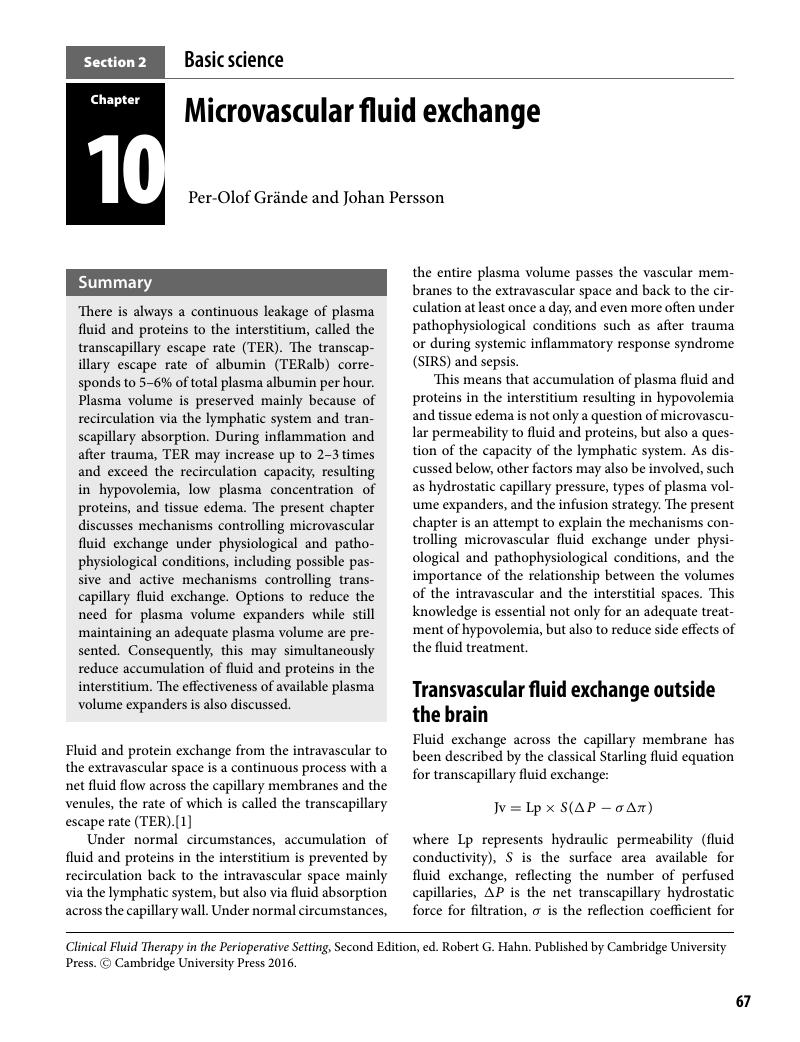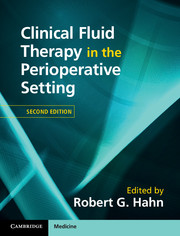Book contents
- Clinical Fluid Therapy in the Perioperative SettingSecond Edition
- Clinical Fluid Therapy in the Perioperative Setting
- Copyright page
- Contents
- Contributors
- Preface
- Overview of chapter summaries
- Section 1 The fluids
- Section 2 Basic science
- Chapter 7 Body volumes and fluid kinetics
- Chapter 8 Acid–base issues in fluid therapy
- Chapter 9 Fluids and coagulation
- Chapter 10 Microvascular fluid exchange
- Chapter 11 The glycocalyx layer
- Chapter 12 Monitoring of the microcirculation
- Chapter 13 Pulmonary edema
- Section 3 Techniques
- Section 4 The clinical setting
- Index
- References
Chapter 10 - Microvascular fluid exchange
from Section 2 - Basic science
Published online by Cambridge University Press: 05 June 2016
- Clinical Fluid Therapy in the Perioperative SettingSecond Edition
- Clinical Fluid Therapy in the Perioperative Setting
- Copyright page
- Contents
- Contributors
- Preface
- Overview of chapter summaries
- Section 1 The fluids
- Section 2 Basic science
- Chapter 7 Body volumes and fluid kinetics
- Chapter 8 Acid–base issues in fluid therapy
- Chapter 9 Fluids and coagulation
- Chapter 10 Microvascular fluid exchange
- Chapter 11 The glycocalyx layer
- Chapter 12 Monitoring of the microcirculation
- Chapter 13 Pulmonary edema
- Section 3 Techniques
- Section 4 The clinical setting
- Index
- References
Summary

- Type
- Chapter
- Information
- Clinical Fluid Therapy in the Perioperative Setting , pp. 67 - 72Publisher: Cambridge University PressPrint publication year: 2016

